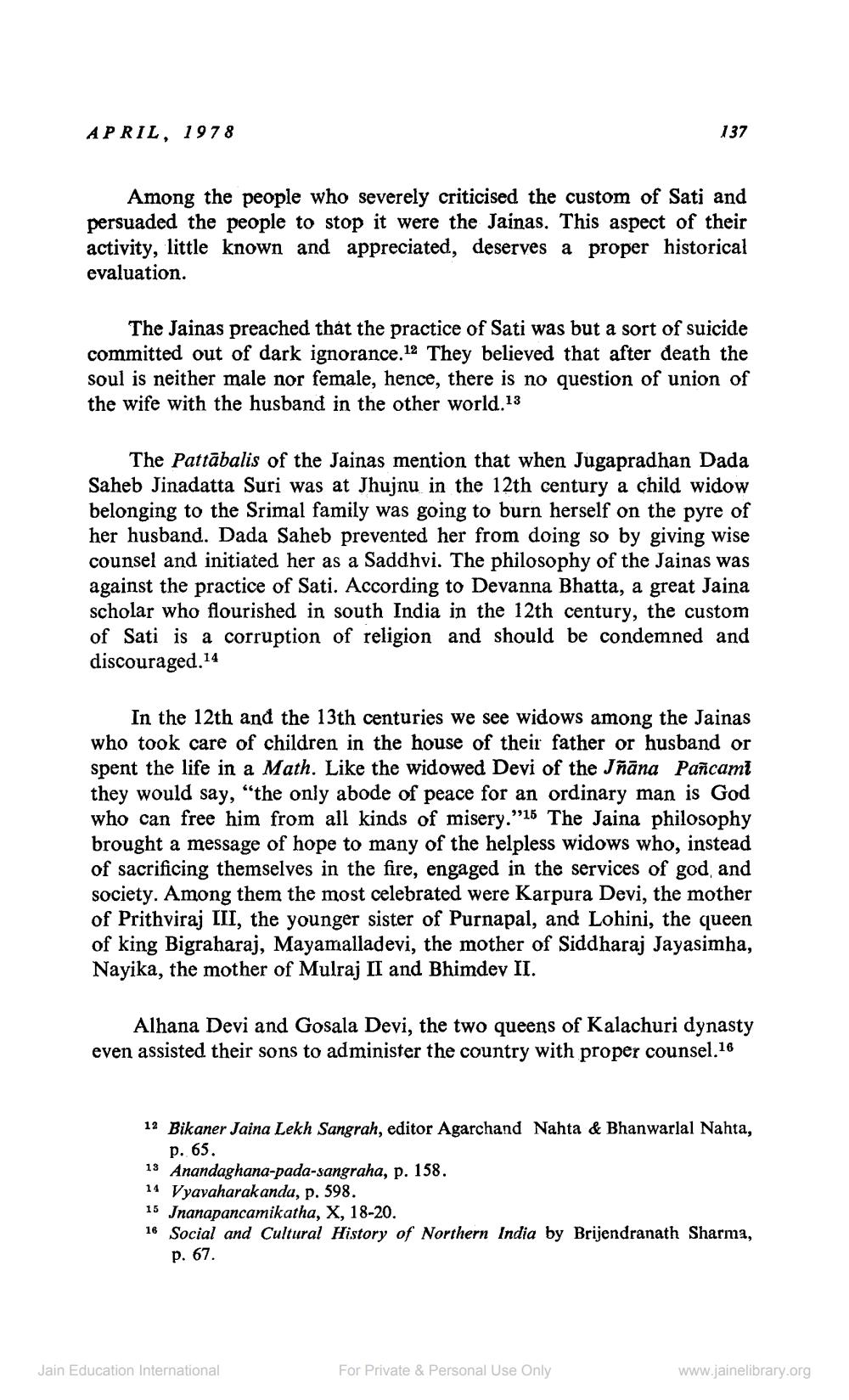________________
APRIL, 1978
137
Among the people who severely criticised the custom of Sati and persuaded the people to stop it were the Jainas. This aspect of their activity, little known and appreciated, deserves a proper historical evaluation.
The Jainas preached that the practice of Sati was but a sort of suicide committed out of dark ignorance.12 They believed that after death the soul is neither male nor female, hence, there is no question of union of the wife with the husband in the other world. 13
The Pattābalis of the Jainas mention that when Jugapradhan Dada Saheb Jinadatta Suri was at Jhujnu in the 12th century a child widow belonging to the Srimal family was going to burn herself on the pyre of her husband. Dada Saheb prevented her from doing so by giving wise counsel and initiated her as a Saddhvi. The philosophy of the Jainas was against the practice of Sati. According to Devanna Bhatta, a great Jaina scholar who flourished in south India in the 12th century, the custom of Sati is a corruption of religion and should be condemned and discouraged.14
In the 12th and the 13th centuries we see widows among the Jainas who took care of children in the house of their father or husband or spent the life in a Math. Like the widowed Devi of the Jñāna Pancami they would say, "the only abode of peace for an ordinary man is God who can free him from all kinds of misery."15 The Jaina philosophy brought a message of hope to many of the helpless widows who, instead of sacrificing themselves in the fire, engaged in the services of god and society. Among them the most celebrated were Karpura Devi, the mother of Prithviraj III, the younger sister of Purnapal, and Lohini, the queen of king Bigraharaj, Mayamalladevi, the mother of Siddharaj Jayasimha, Nayika, the mother of Mulraj II and Bhimdev II.
Alhana Devi and Gosala Devi, the two queens of Kalachuri dvnasty even assisted their sons to administer the country with proper counsel.16
12 Bikaner Jaina Lekh Sangrah, editor Agarchand Nahta & Bhanwarlal Nahta,
p. 65. 13 Anandaghana-pada-sangraha, p. 158. 14 Vyavaharakanda, p. 598. 15 Jnanapancamikatha, X, 18-20. 16 Social and Cultural History of Northern India by Brijendranath Sharma,
p. 67.
Jain Education International
For Private & Personal Use Only
www.jainelibrary.org




